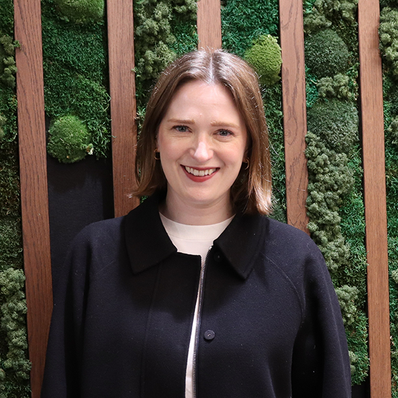We must work harder to bring the 5G opportunity to all corners of the UK
Tackling Economic Inequality - Create new businesses, jobs and skills, and increase supply chain resilience and capacity.
Guest blog: Nicki Lyons, Corporate Affairs and Sustainability Director, Vodafone UK, explores why it is critical to tackle the rural digital divide to offer the benefits of the digital society to everyone and everywhere.
5G is a £150 billion idea for the UK economy, but right now, we’re not delivering that opportunity evenly across the UK. There is a digital divide, but we can fix it.
Over the last 12 months, we’ve taken the first steps to delivering “full” 5G, known as 5G Standalone in the industry.
In the summer, Vodafone switched on the UK’s first 5G Standalone network, and we quickly followed up with a trial with ITN to broadcast the King’s Coronation over 5G, and in Coventry, we ran a gaming trial to show how 5G can replicate the console experience on smartphones.
Both trials used a concept called network slicing, where we create connectivity services specific to use case. This customisable capability is only possible over 5G Standalone.
Driverless cars, virtual reality, holograms, robotics, drone deliveries and the metaverse might not be that far away when we can be smarter and more customisable with our network – we could bring science fiction to life.
This is perhaps a point many are missing about 5G Standalone. It can of course improve what we have today, but it also creates the opportunity to be genuinely novel and innovative. This is incredibly exciting. It is imagination unleashed, the chance to push boundaries that were previously out of reach.
At Vodafone, we live by the mantra of “the art of the possible” – it encourages people to think big. This approach is only possible when we have the right tools, the 5G Standalone network that Vodafone has already made available to the public.
These new capabilities and new experiences will also translate as new revenues for companies and new job opportunities for citizens. Research by Assembly suggested that the 5G value chain could create as many as 600,000 jobs in the UK.
But as it stands, the urban communities are going to benefit more than the rural. This is a digital divide, and it becomes even worse when you layer on the prosperity of an area, as recent Vodafone research demonstrates.
The more deprived and rural an area, the lower the likelihood of good connectivity. This impacts customers and communities today, but it will only heighten. More day-to-day activities and public services are becoming digitised, and more businesses are being defined by technology.
If we do not fix the rural digital divide that exists today, we’ll only compound the challenge and make fixing it tomorrow even more difficult.
In October, the National Infrastructure Committee made some very positive recommendations, and Ofcom suggested making changes to the way Net Neutrality is managed in the UK. This builds on the existing positive position through the Wireless Infrastructure Strategy, the Competition and Markets Authority (CMA) evaluating the cloud market and Government investments in areas such as OpenRAN, 5G test beds and the Shared Rural Network programme (SRN).
There is plenty of positive work in realising the opportunity of 5G and complementary digital technologies, now we just to have to make sure it is evenly spread throughout the country.
The first step in solving any problem is acknowledging it is there. That is something we often gloss over in the industry, and it is a source of frustration for customers.
There is a rural digital divide which exists today, which becomes more apparent for the deprived communities. 5G will create opportunity for prosperity, but only when those communities have access to the most technologically advanced digital infrastructure.
If we want to narrow the gap between the rich and the poor, the haves and the have nots, we have to present opportunity democratically and fairly. This means the opportunity to access digital public services, as well as starting up a business wherever you choose.
To do this, we need to improve the reach of the existing 4G network and bringing the 5G Standalone network to these communities as soon as possible. 5G could add £7.4 billion a year to the UK economy by 2030, but to make sure this additional value we need a policy environment which encourages investment and a competition dynamic in the industry which promotes innovation.
We’re not on the right track right now to solve the rural digital divide, but we know what we need to change to fix that. Now, we need the right support to turn our plan into action.
Exploring the Potential of Future Telecoms
Visit our Future Telecoms Hub to learn more or to register for regular updates.
Future Telecoms is techUK’s exploration of what the connectivity of tomorrow will look like. We will highlight the criticality of communications to our future prosperity and economic growth, and how the future telecoms ecosystem acts as the engine of innovation. Visit our Future Telecoms Hub to learn more or to register for regular updates.
Upcoming Future Telecoms events
Latest news and insights
Telecoms updates
Sign-up to get the latest updates and opportunities from our Communications Infrastructure and Services programme.
Contact the team
Learn more about our Future Telecoms campaign













